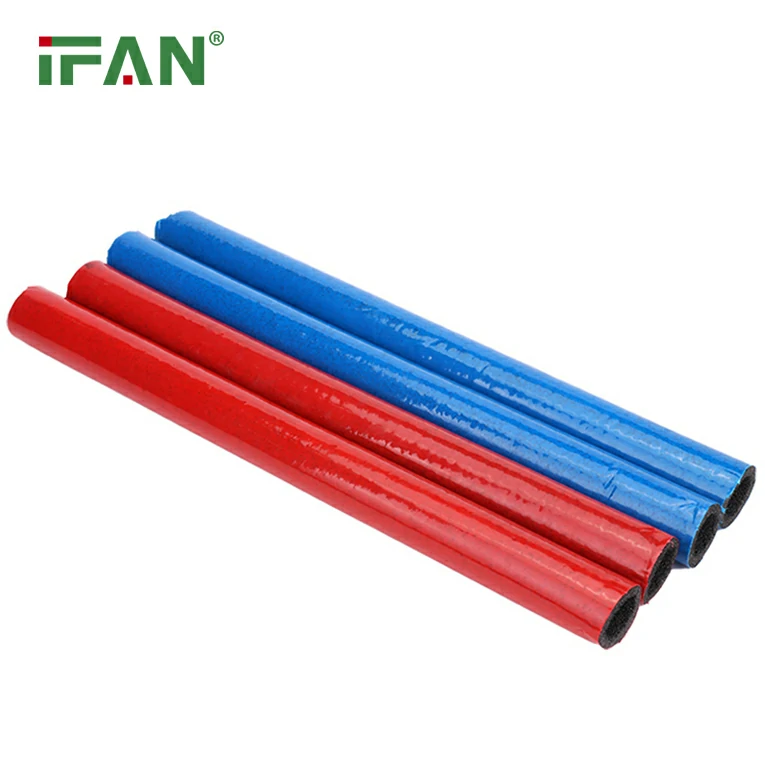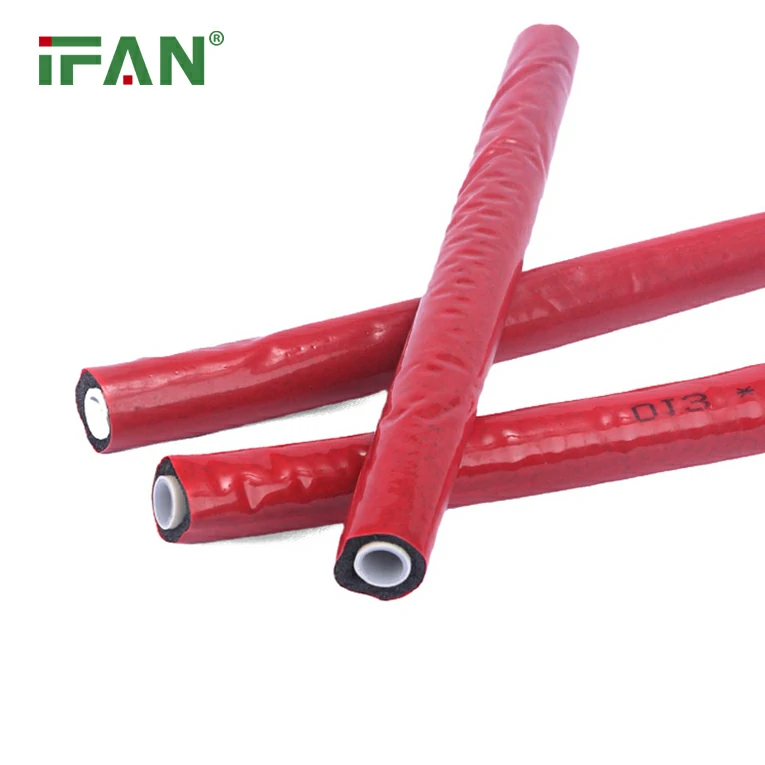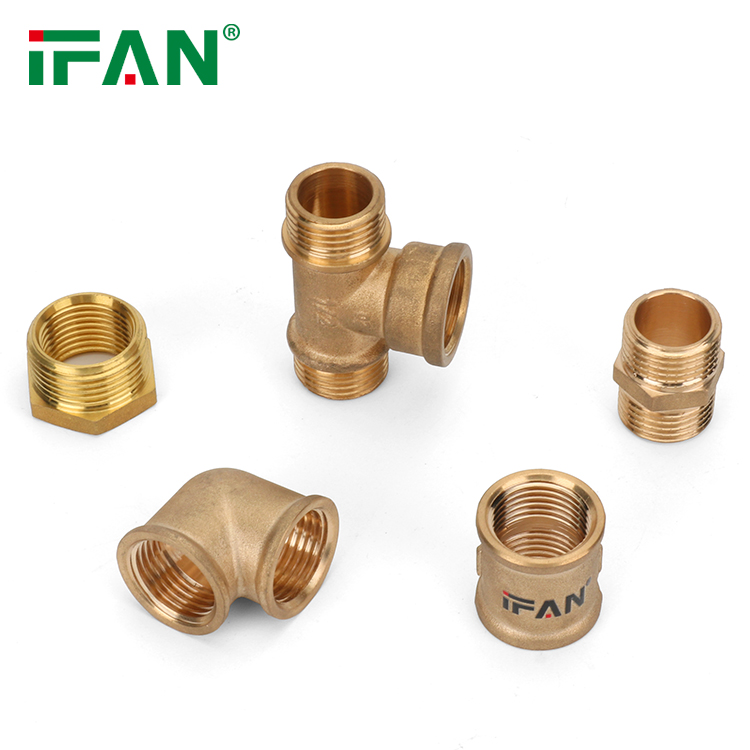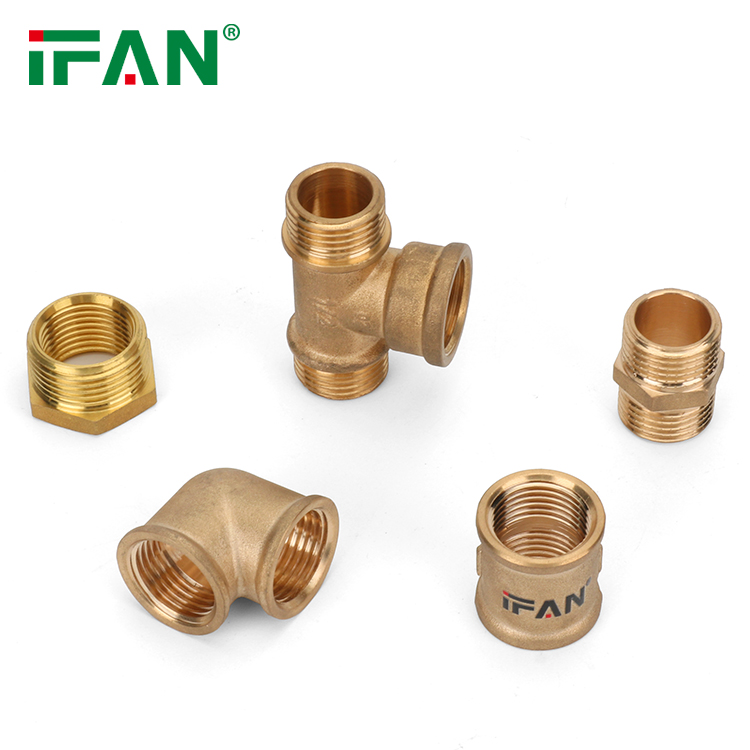In the world of commercial plumbing and heating systems, PEX pipes have rapidly become a preferred choice due to their versatility, durability, and ease of installation. REHAU, a global leader in polymer-based solutions, is one of the key players in the development and innovation of PEX pipe systems. Known for their high-quality products, REHAU has made significant strides in commercial applications of PEX for plumbing, heating, and cooling systems.
In this article, we sit down for a Q&A session with REHAU to delve deeper into the role of PEX pipes in commercial plumbing and heating systems. We’ll explore the benefits, challenges, and future of PEX pipe technology, as well as how REHAU is leading the way in revolutionizing plumbing and heating systems across the globe.
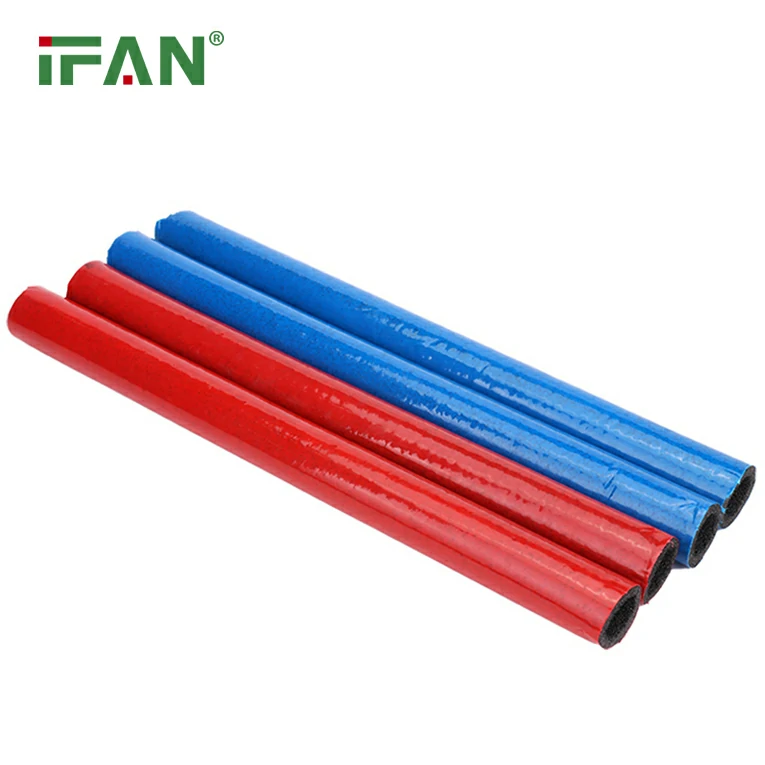
Table of Contents:
- Introduction to REHAU and PEX Pipe Systems
- Why Choose PEX for Commercial Plumbing and Heating?
- The Benefits of Using REHAU’s PEX Systems
- Common Applications of PEX in Commercial Buildings
- Addressing Common Concerns with PEX Pipe Systems
- The Future of PEX in Commercial Construction
- Frequently Asked Questions (FAQs)
Introduction to REHAU and PEX Pipe Systems
REHAU is a globally recognized brand specializing in the development of high-performance polymer-based products. The company’s PEX pipe systems have become industry standards in both residential and commercial applications. With a commitment to innovation and sustainability, REHAU provides a comprehensive range of PEX piping solutions that meet the demanding needs of modern plumbing, heating, and cooling systems.
PEX (cross-linked polyethylene) is a flexible and durable material that is increasingly being used in commercial plumbing and heating systems due to its many advantages over traditional materials like copper and PVC. The cross-linking process gives PEX increased strength, resistance to corrosion, and the ability to handle both hot and cold water, making it ideal for a wide range of applications.
Why Choose PEX for Commercial Plumbing and Heating?
Q1: Why is PEX becoming more popular in commercial plumbing and heating systems?
REHAU: PEX has become a preferred material in commercial plumbing and heating systems for several reasons. First, PEX offers exceptional flexibility, which allows it to be easily routed through walls, ceilings, and floors without the need for additional fittings or joints. This not only reduces installation time but also helps lower labor costs.
Second, PEX pipes are highly resistant to scale, corrosion, and chlorine, which makes them an ideal solution for long-term use in plumbing systems. This resistance to corrosion ensures that PEX pipes will last longer than traditional copper pipes, which are susceptible to corrosion, especially in hard water environments.
Another reason for PEX’s growing popularity in commercial applications is its ability to withstand both high and low temperatures, making it suitable for a variety of plumbing and heating needs, from hot water systems to radiant heating.
The Benefits of Using REHAU’s PEX Systems
Q2: What sets REHAU’s PEX systems apart from others in the market?
REHAU: REHAU offers PEX pipe systems that are engineered for maximum performance and reliability. One of the key differentiators of our PEX systems is the use of our patented RAUPEX piping, which is cross-linked using a unique method that improves the pipe’s resistance to cracking and enhances its durability.
Additionally, REHAU’s PEX pipes are designed for easy and fast installation. Our RAUPEX pipes are compatible with a range of connection methods, including push-fit, crimping, and expansion fittings, which allow contractors to choose the best option for their project needs.
REHAU’s systems are also designed with energy efficiency in mind. Our PEX pipes help reduce energy consumption by maintaining consistent water temperatures, which is particularly important in commercial heating systems where energy costs are a significant concern.
Common Applications of PEX in Commercial Buildings
Q3: What are some common applications of PEX in commercial buildings?
REHAU: PEX is highly versatile and can be used in a variety of commercial applications. Some of the most common uses include:
- Plumbing Systems: PEX pipes are ideal for both hot and cold water distribution systems in commercial buildings. Their flexibility allows for easy installation and modification of the system, especially in large buildings with complex layouts.
- Radiant Heating Systems: PEX pipes are widely used in commercial radiant heating systems. The flexibility and durability of PEX make it a perfect solution for installing heating loops in floors, walls, or ceilings, providing energy-efficient heating throughout the building.
- Snow Melt Systems: PEX is also used in snow melt systems for commercial parking lots, driveways, and walkways. The ability of PEX to handle both hot and cold temperatures makes it perfect for outdoor applications where freezing and thawing cycles are common.
- Fire Sprinkler Systems: REHAU’s PEX pipes are also used in fire sprinkler systems due to their ability to handle high temperatures and resist corrosion. They provide a reliable, long-lasting solution for fire protection systems in commercial buildings.
Addressing Common Concerns with PEX Pipe Systems
Q4: Are there any common concerns about using PEX pipes in commercial applications?
REHAU: While PEX pipes offer many benefits, we understand that there are some concerns that contractors and building owners may have when considering them for commercial projects. Let’s address a few of these common concerns:
1. UV Exposure: PEX pipes are sensitive to ultraviolet (UV) light and should not be used outdoors unless properly protected. UV exposure can degrade the material, so it’s essential to use PEX in areas that are shielded from direct sunlight or to install UV-resistant coatings if needed.
2. Physical Damage: Although PEX pipes are durable, they can be susceptible to damage from sharp objects or impacts during installation. It’s essential to handle the pipes carefully during the installation process and avoid exposing them to physical stress.
3. Compatibility with Existing Systems: Some contractors may be concerned about integrating PEX pipes with older plumbing systems. However, PEX pipes can be easily connected to other types of pipes, such as copper and PVC, using appropriate fittings, which allows for seamless integration with existing systems.
4. Perceived Durability Issues: Some people still perceive PEX pipes as less durable than traditional materials like copper. However, PEX pipes have been rigorously tested and are proven to be as durable—if not more—than copper pipes, especially when it comes to resisting corrosion and scale build-up.
The Future of PEX in Commercial Construction
Q5: How do you see the future of PEX pipes in commercial construction?
REHAU: The future of PEX in commercial construction is incredibly promising. As building designs continue to evolve and demand for sustainable, energy-efficient solutions increases, PEX will continue to play a central role in shaping the industry. Its versatility and ability to reduce energy consumption in both plumbing and heating systems will become increasingly important as businesses seek to lower operational costs and meet stricter environmental regulations.
We also expect further innovations in PEX technology, particularly in terms of smart building integration. PEX pipes will likely be incorporated into more intelligent plumbing and heating systems, allowing for remote monitoring and enhanced energy management.
Additionally, as more contractors and engineers become familiar with the benefits of PEX, its use in large-scale commercial projects will continue to grow. With continued education and support from manufacturers like REHAU, PEX pipes will become an industry standard for both new construction and renovation projects.
Frequently Asked Questions (FAQs)
1. What are the advantages of using PEX pipes over traditional copper pipes in commercial applications?
PEX pipes are more affordable, easier to install, and offer greater flexibility compared to copper pipes. They are resistant to corrosion and scale build-up, which extends their lifespan, and are ideal for both hot and cold water systems.
2. How long do PEX pipes last in commercial applications?
PEX pipes have an expected lifespan of 40 to 50 years, depending on installation conditions and usage. They are highly durable and resistant to corrosion, which contributes to their longevity.
3. Can PEX pipes be used for both hot and cold water systems?
Yes, PEX pipes are suitable for both hot and cold water distribution systems, making them a versatile choice for a wide range of commercial plumbing applications.
4. Are there any restrictions on the use of PEX pipes in outdoor installations?
PEX pipes should be protected from direct UV exposure, as UV light can degrade the material over time. If used outdoors, it’s essential to shield the pipes from sunlight or use UV-resistant coatings.
5. Can PEX pipes be connected to other types of pipes, such as copper or PVC?
Yes, PEX pipes can be easily connected to other types of pipes using appropriate fittings, allowing for seamless integration with existing plumbing systems.
In conclusion, PEX pipes are revolutionizing commercial plumbing and heating systems, offering unparalleled flexibility, durability, and cost-efficiency. As the industry continues to evolve, PEX will remain a vital component in modern construction, thanks to its ability to meet the growing demands for sustainable, energy-efficient solutions. REHAU’s innovative PEX systems are leading the charge in this transformation, making PEX a smart and reliable choice for commercial
projects worldwide.

